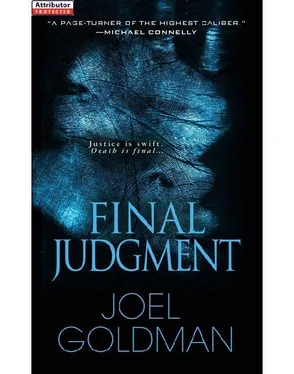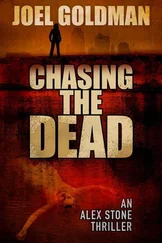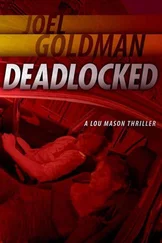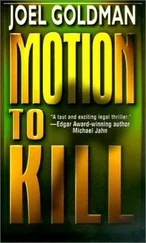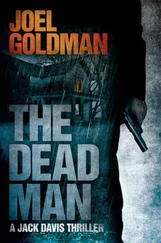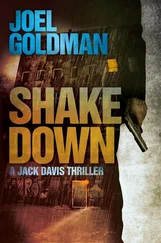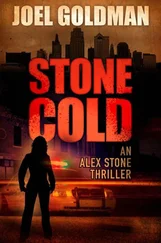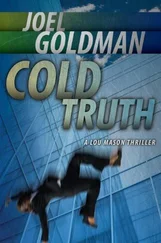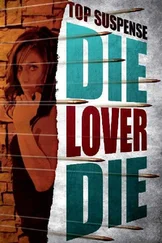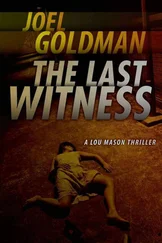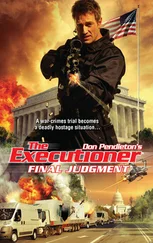Joel Goldman - Final judgment
Здесь есть возможность читать онлайн «Joel Goldman - Final judgment» весь текст электронной книги совершенно бесплатно (целиком полную версию без сокращений). В некоторых случаях можно слушать аудио, скачать через торрент в формате fb2 и присутствует краткое содержание. Жанр: Криминальный детектив, на английском языке. Описание произведения, (предисловие) а так же отзывы посетителей доступны на портале библиотеки ЛибКат.
- Название:Final judgment
- Автор:
- Жанр:
- Год:неизвестен
- ISBN:нет данных
- Рейтинг книги:3 / 5. Голосов: 1
-
Избранное:Добавить в избранное
- Отзывы:
-
Ваша оценка:
- 60
- 1
- 2
- 3
- 4
- 5
Final judgment: краткое содержание, описание и аннотация
Предлагаем к чтению аннотацию, описание, краткое содержание или предисловие (зависит от того, что написал сам автор книги «Final judgment»). Если вы не нашли необходимую информацию о книге — напишите в комментариях, мы постараемся отыскать её.
Final judgment — читать онлайн бесплатно полную книгу (весь текст) целиком
Ниже представлен текст книги, разбитый по страницам. Система сохранения места последней прочитанной страницы, позволяет с удобством читать онлайн бесплатно книгу «Final judgment», без необходимости каждый раз заново искать на чём Вы остановились. Поставьте закладку, и сможете в любой момент перейти на страницу, на которой закончили чтение.
Интервал:
Закладка:
“That was more persuasive than telling you I had an allergic reaction that inflamed my eye,” she said with a wave of her hand. “I had to keep you motivated. That’s why I kept moving up the blackmailer’s deadline.”
“You lied about everything.”
“I lied? Were you lying when you told the police and that reporter what you did to me?”
“You weren’t being blackmailed. It was all a scam to get even with me.”
“I worked my entire life to be here, in this courtroom, and have the respect of the people who appear before me. Look at what I’ve missed because of you. The change in technology alone makes me feel like a child on her first day of school. I don’t understand how any of it works. But, this is my house,” she said, pounding her gavel, “and you took it from me because you weren’t a good enough lawyer to represent your client like everyone else does-according to the rules. Well, I took it back. Call it what you want, but I call it justice.”
“What made you think you could get me to turn myself in and cover for you at the same time?”
“You did. Look at you. Look at the people you represent. Look at the risks you take for them. You can’t wait to fall on your sword. All I did was sharpen the blade. You are excused, Counsel.”
The court reporter opened the rear door of the courtroom and raced to the computer at her desk. The bailiff followed close behind her, the two of them scrolling down the monitor, studying the transcript of the judge’s and Mason’s conversation.
“What’s the meaning of this?” Judge Carter demanded.
“There’s no mistake,” the court reporter told the bailiff. “It’s the same as on the computer in my office.”
“Judge Carter,” the bailiff said, one hand on the butt of his service revolver. “We have a problem.”
EIGHTY-THREE
The day after Fish’s funeral, Mason received a phone call from one of Fish’s daughters. She read to him a letter she’d received from the United States attorney, Roosevelt Holmes. The letter commended Fish for his exemplary and selfless cooperation with an important Justice Department investigation. Holmes wrote that for reasons of national security he regretted that he could not share the details with the family but added that the mail fraud charge against Fish had been officially expunged. She asked Mason for details of what her father had done. Mason explained that he was subject to the same constraints, but said that Fish had done the right thing and that was all that mattered.
Carol Hill pled innocent to the murders of Charles Rockley, Johnny Keegan, and Mark Hill. She claimed that Keegan had killed Rockley, out of jealousy; that her husband had killed Keegan, because he was jealous of Keegan; and that she didn’t know who killed her husband. Vince Bongiovanni hired a dream team of defense lawyers to represent her. They kicked him off the team after they interviewed Mason and he told them that Bongiovanni had helped cover up Carol’s guilt.
Samantha Greer confided to Mason that Carol had a decent chance of getting off. Carol blamed two of the murders on two of the murder victims. One key witness, Al Webb, had quit his job at the Galaxy Casino and left town without a trace. Mason was the prosecution’s other key witness, particularly concerning his conversation with Carol immediately before she was arrested, and, according to the prosecuting attorney, he had less credibility than a dead politician.
The police caught a break when the pistol they recovered in Troost Lake proved to be the weapon used to kill both Mark Hill and Keegan. The gun had been wiped clean of any prints. The registration was traced to Ed Fiori and had been included on the list of personal property prepared by Vince Bongiovanni in his capacity as executor of his uncle’s estate. Carol claimed she didn’t know anything about the gun. Her lawyers persuaded Carol to accept the prosecutor’s offer to plead guilty to second-degree murder in the deaths of Keegan and Hill. As part of the deal, she agreed to testify against Bongiovanni for his role in the cover-up of the murders. Charges were dropped on Rockley’s murder, which remained classified as unsolved.
Patrick Ortiz decided to defer any decision on whether to prosecute Mason or Judge Carter until after the State Bar Disciplinary Committee reviewed their cases and forwarded its recommendations to the Missouri Supreme Court, which would make the final decisions. If the state disbarred Mason, the Federal Courts would do the same.
Judge Carter avoided the entire process, voluntarily surrendering her law license, and was disbarred. The prosecuting attorney let her plead guilty to a misdemeanor charge of theft by deception. She paid a fine and left town.
Mason appeared before the Supreme Court represented by his Aunt Claire. She argued passionately on his behalf, emphasizing the difficult burdens of criminal defense lawyers and highlighting that Mason had taken responsibility for what he’d done. She urged the court to allow him to keep his license and practice under her supervision for a period of two years. The court took his case under advisement, promising to issue its decision within four to six weeks.
Mason spent the next four weeks in limbo as the last of his clients drifted away and the phone stopped ringing. He sold his house because he needed the money. None of the neighbors helped him pack, though a few stopped in at his garage sale asking how soon he’d be gone. Emptiness grew inside him as he sealed each box of belongings, sorting through what he would keep and what he would give away, surprised at how little he wanted.
Claire kept telling him that change was invigorating and that he should embrace it. He replied that he would take it slowly, having made it a rule to hold hands before embracing. Tuffy took a final trot around the house, sniffing her favorite spots one last time. Mason rented an apartment overlooking Brush Creek on the Plaza.
Abby offered to take a leave of absence from Senator Seeley’s staff, but he convinced her to stay on the job. Sensing that his notoriety was a liability to her in high-profile Washington circles, he declined her invitations to visit and kept their telephone conversations short. His feelings for her hadn’t changed, but his capacity for their relationship was, like his future, uncertain.
He kept up on the search for Dennis Brewer and Kelly Holt through Samantha Greer and Rachel Firestone. Eventually, the FBI told the police they no longer required their assistance. The news coverage subsided until one day in March when Brewer’s body was discovered in a shallow grave in Detroit. An FBI spokesman said there were no leads or suspects and that the money taken in the robbery had not been recovered. There was no word about Kelly. Mason tried reaching Roosevelt Holmes and Pete Samuelson, but neither returned his calls.
By the time the Supreme Court decision arrived, his mail had dwindled to a trickle of bills and promotions so the official-looking envelope was easy to spot when the mail carrier shoved it through the slot in his office door. The envelope landed in the center of the floor and he stared at it from behind his desk.
He had brought Tuffy with him to the office to give her a break from confinement in the apartment. She was lying on the sofa. When the mail arrived, she climbed down and sniffed it.
“You open it,” he told the dog, who looked up at him, her tail wagging.
Mason opened the envelope and skipped to the last paragraph of the decision, knowing that’s where the ruling would be set out. After reciting the undisputed facts, the court cited Mason’s duties as an officer of the court, the corrosive effect of his conduct on the legal system, his determined efforts to keep his actions secret, and that he had only come forward when he had been duped into doing so. In light of all that, the court said, there was no alternative. He was disbarred.
Читать дальшеИнтервал:
Закладка:
Похожие книги на «Final judgment»
Представляем Вашему вниманию похожие книги на «Final judgment» списком для выбора. Мы отобрали схожую по названию и смыслу литературу в надежде предоставить читателям больше вариантов отыскать новые, интересные, ещё непрочитанные произведения.
Обсуждение, отзывы о книге «Final judgment» и просто собственные мнения читателей. Оставьте ваши комментарии, напишите, что Вы думаете о произведении, его смысле или главных героях. Укажите что конкретно понравилось, а что нет, и почему Вы так считаете.
